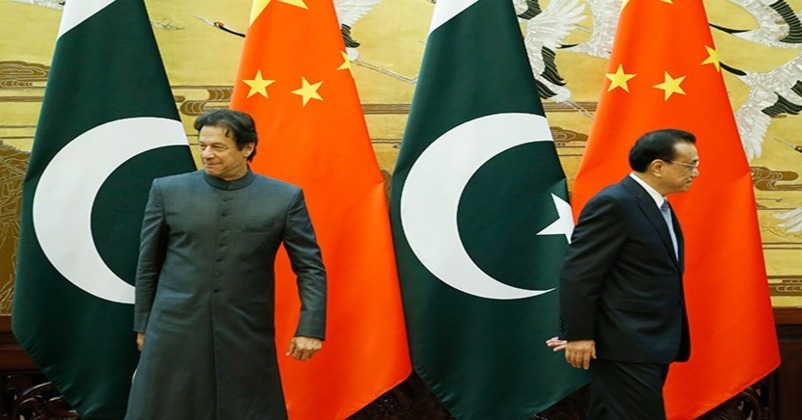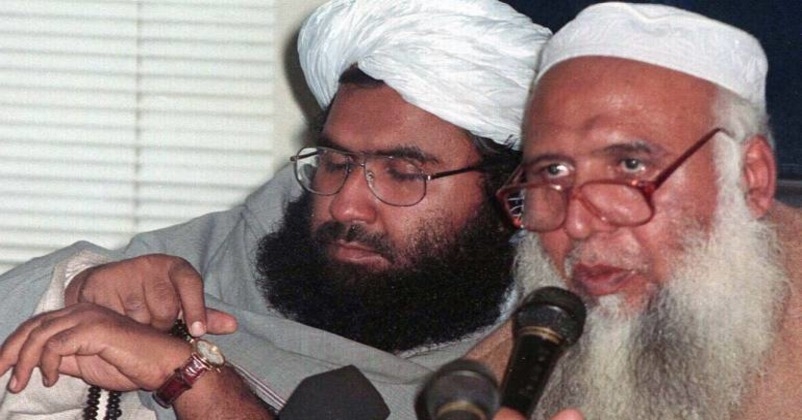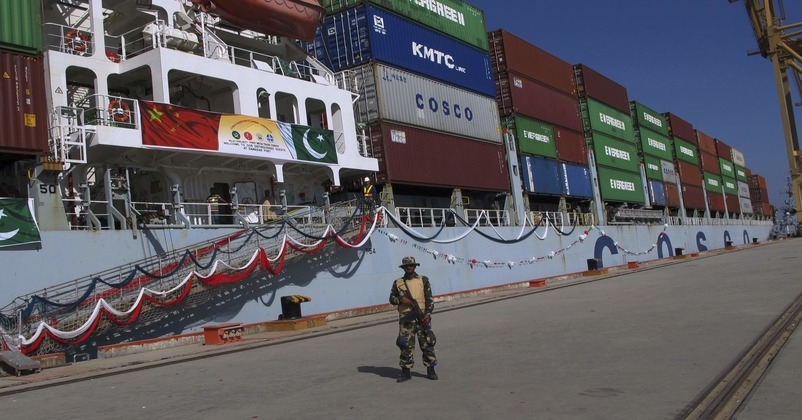Expert Opinion: How long can China protect Pakistani terrorists?
| 24-Apr-2019 |

K.N. Pandita
On Wednesday, 13 March, China blocked for the fourth consecutive time a resolution at the UN Security Council Committee on designating Azhar Masu’d, chief of the Pakistan-based terrorist organization Jesh-e-Muhammad (JeM) as a global terrorist. The proposal to designate Azhar under the 1267 Al Qaeda Sanctions Committee of the UN Security Council was moved by France, the UK and the US on February 27, days after a suicide bomber of the JeM killed 44 CRPF soldiers in Jammu and Kashmir's Pulwama town, leading to a flare-up in tensions between India and Pakistan.
Speaking on the resolution, the Chinese delegate at the Security Council said that his country had made a deep and in-depth study of the application and needed more time to come to a final conclusion. He, therefore, stated that he would ask for deferment of the resolution on “technical grounds”. The fact of the matter is that there is no term as “technical grounds” in the procedures of the Security Council and what the Chinese delegate said was vague as well as veiled.
The question that is now seriously asked in all political circles at the UN is what is it that makes China exhaust its diplomatic and political energy to protect a known terrorist and thus isolate itself from the world community for not sharing the views that terrorism has to be eradicated lock, stock and barrel. The argument produced by the Chinese delegate had no buyers at the Security Council. This further intensified the inquisitiveness of the members to find out what makes China support the known terrorist leader.
Various surmises are made about China continuously shielding the most dreaded terrorist in Pakistan. We know that China has deep interests in Pakistan because Pakistan is the only country in the world that has decided to be the ally of China. Even the President of North Korea, who was reported to be the primary proxy of China in her rivalry with the US, too, has been recently trying to distance himself from Beijing.

JeM Masood Azhar
China has shown extraordinary interest in the China-Pakistan Economic Corridor (CPEC) for both commercial and political reasons. The corridor passes through the heartland of Pakistan down to the strategic port of Gwadar on the coast of Makran of Balochistan province. A good length of this road in Pakistan passes through an area that is infested with anti=Pakistan dissident groups who do not hesitate to take recourse to armed insurgency intermittently. China is aware that Pakistan is almost a lawless country where groups of gangsters and looters are capable of inflicting serious damage to the caravans of trade passing through the CPEC. These armed gangsters are in close liaison with the terrorist organizations based in Pakistan. Therefore, China wants the security of the CPEC should be ensured and made dependable.
The common belief in Pakistan is that China has been in direct contact with the main terrorist organizations in Pakistan and is pursuing to obtain from them the assurance that they would not disrupt the smooth passage of caravans along the CPEC. It has to be remembered that in the past there have been attempts by the gangsters in Southern Pakistan to kidnap the Chinese workers. Even an attempt was made recently to attack the Chinese Consulate in Quetta but the attack was thwarted resulting in the killing of two Pakistani guards. There are apprehensions that recurrence of such attacks would happen because the terrorist groups are outside the control of the civil administration and in some cases, these are taken by the Pakistan army under its protective wings.
However, this apart, there is another and more convincing reason why China is incurring the displeasure of the entire world community yet stands by the known Pakistani terrorist Masu’d Azhar. It will be reminded that China is faced with a revolt in its western province of Xinjiang, the traditional Eastern Turkistan, a province inhabited by nearly thirty million Muslim Uighurs of Sunni sect. They have been demanding separation from the Chinese Republic and the creation of independent Eastern Turkestan. However, Beijing has unleashed a policy of repression on them. In the first place, China has effected drastic changes in the demographic complexion of the province by resettling millions of the Hun ethnic population in the province in order to reduce the majority of the Uighurs to a minority. Secondly, Beijing has imposed many restrictions on the religious freedom of the Muslim population. The freedom of pursuing religious functions and maintaining indigenous culture is severely curtailed. The building of new mosques is prohibited and the school curricula are drastically changed to exclude Islamic history and replace it with the Chinese history of liberating the province. Even the observance of the month of fasting and loud recitation of prayers in the mosques is forbidden. These are the reasons why the Uighurs are in a state of revolt against the Chinese authorities. Unleashing of the brute force against the Uighur nationalists has not helped in crushing the movement.

Gwadar Port, China to invest 55B$ in CPEC
In the past, reports were making rounds among the newsmen that Pakistani terrorist organizations including JeM had been receiving the Uighur volunteers for training them in terrorist activities and sending them back to Turkestan with arms, ammunition and ideology. China is reported to have executed some of the Pakistani volunteers or fidayeen captured by Chimes security guards somewhere in Xinxiang. China found a solution of this problem in fraternizing with Masu’d Azhar who heads the primary jihadist organization in Pakistan and the grapevine has it that there exists an understanding between Masu'd and the Chinese authorities that the armed gangsters in Pakistan will not harm Chinese interests. In return, China has promised to protect the interests of Pakistani terrorists.
Now that China has blocked the resolution of branding Masu’d as a global terrorist, three powerful members of the Security Council, US, UK and France are having consultations among themselves to find some other way of dealing with Chinese aggressive posture. They are likely to call for a general debate on the subject and then introduce a resolution which will be passed by a majority of vote declaring Masu’d Azhar as global terrorists. This move is already known to China and it finds itself in an embarrassing situation.